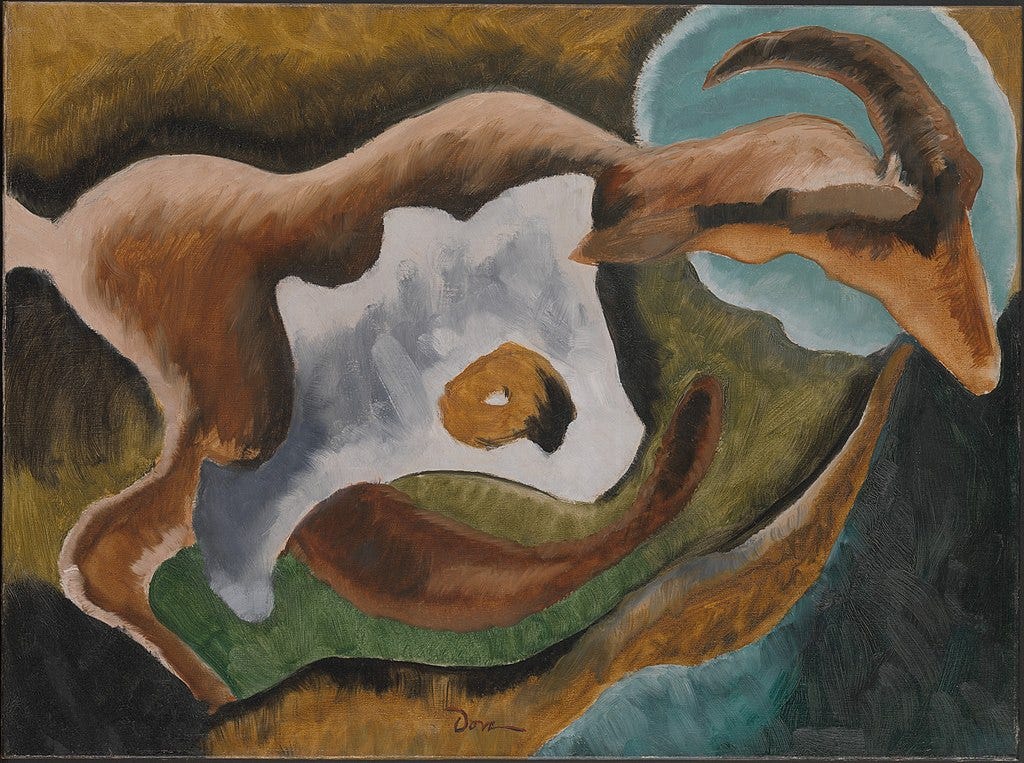Caught in the potential world
Bass, Levertov, Polek, Tsvetaeva, Notley, Elytis, Dumézil, Yap, Ferrante
The Sky, the Stars, the Wilderness by Rick Bass
All my life up to that point seemed to fall away, as if over the cliff, and yet it was confusing, too, since I kept growing: being torn in two directions by the richness of life, is what it felt like—the richness of the past, the promise of the future—and always wondering, How much of me is really me? What part has been sculpted by the land, and what part by blood legacy, bloodline? What mysterious assemblage is created anew from those two intersections?
Collected Earlier Poems: 1940-1960 by Denise Levertov
You have my
attention: which is
a tenderness, beyond
what I may say. And I have
your constancy to
something beyond myself.
The force
of your commitment charges us—we live
in the sweep of it, taking courage
one from the other.
Bitter Water Opera by Nicolette Polek
I imagined his words as small, buoyant pearls, cast from the front of the chapel and out the propped-open windows, into the town, over the house and high wall, some falling and settling onto the ground, falling into open windows of parked cars outside the market or the potted soil at the nursery, breathed in and carried on clothes, waiting to be encountered and revealed. I imagined all our words living out similar courses, so that we were moving through a misty network of word droplets, which changed in concentration and motivation depending on the proximity of certain people and ideas, and how easily the tide of language might be manipulated by propagating our tongues and hearts with goodness, by choosing to say and repeat it.
Insomnia by Marina Tsvetaeva
Your name—how impossible, it
is a kiss in the eyes on
motionless eyelashes, chill and sweet.
Your name is a kiss of snow
a gulp of icy spring water, blue
as a dove. About your name is: sleep.
“The Person Who Performs” by Alice Notley, with Janique Vigier
Poetry outlasts everything. It’s a primeval spirit. It’s probably the first speech. It comes with speech. It’s what children do, when they play with their first words. And it comes from nowhere, and it always goes on. And there’s no way to lose it, but people don’t know how to find it. People think they don’t know how to read it, and that they don’t have any need for it. Maybe they don’t have any need for it. I don’t know. The world has poetry inside it anyway.
The Light Tree and the Fourteenth Beauty by Odysseus Elytis
And yet let us imagine children playing on an old threshing floor which could even be in a tenement and that the loser
Must by the rules speak and forfeit some truth to the others
So that at last they all find themselves holding in their hand a small
Silver gift poem.
Gods of the Ancient Northmen by Georges Dumézil
In addition to Yggdrasil, a veritable axis mundi that climbs from the bowels of the earth to the sky, Nordic mythology recognizes a less pretentious tree named Lærad, which is located entirely in the upper world, specifically near or in the home of Odin. Most likely this corresponds in mythology either to the village tree or to the tree that stands at the center of a house (probably as part of the original framework) such as the oak in the great hall of the Volsungs. In any case, all of this derives from a central idea that appears again in the world tree, and it is difficult, perhaps futile to try to determine whether this practice produced the myth or vice versa.
The Collected Poems of Arthur Yap
here, in the night, trees sink deeply downward.
the sound of moonlight walking on black grass
magnifies the clear hard calls of a nightjar,
its soliloquy of ordered savagery, little intervals.
time, clinging on the wrist, ticks it by
but eyes, glued to the dark pages of night,
could not scan the source on the branch.
The Lying Life of Adults by Elena Ferrante
“Obligation to God is worth the trouble. Do you like poetry?”
“Yes”
“Do you read it?”
“When I can.”
“Poetry is made up of words, exactly like the conversation we’re having. If the poet takes our banal words and frees them from the bounds of our talk, you see that from within their banality they manifest an unexpected energy. God manifests himself in the same way.”
“The poet isn’t God, he’s simply someone like us who also knows how to create poems.”
“But that creation opens your eyes, amazes you.”
“When the poet is good, yes.”
“And it surprises you, gives you a jolt.”
“Sometimes.”
“God is that: a jolt in a dark room where you can no longer find the floor, the walls, the ceiling. There’s no way to reason about it, to discuss it. It’s a matter of faith. If you believe, it works. Otherwise, no.”
“Why should I believe in a jolt?”


